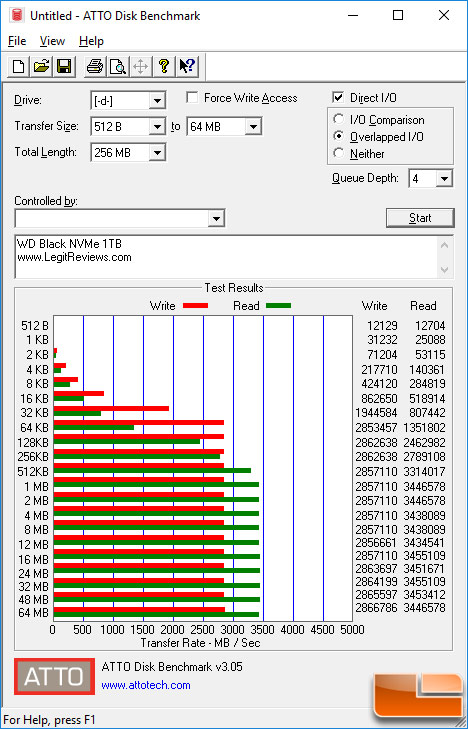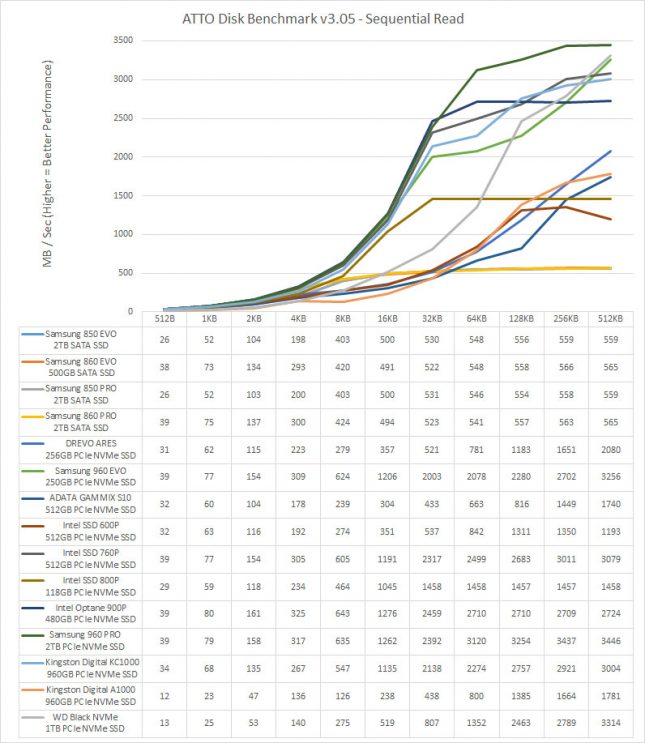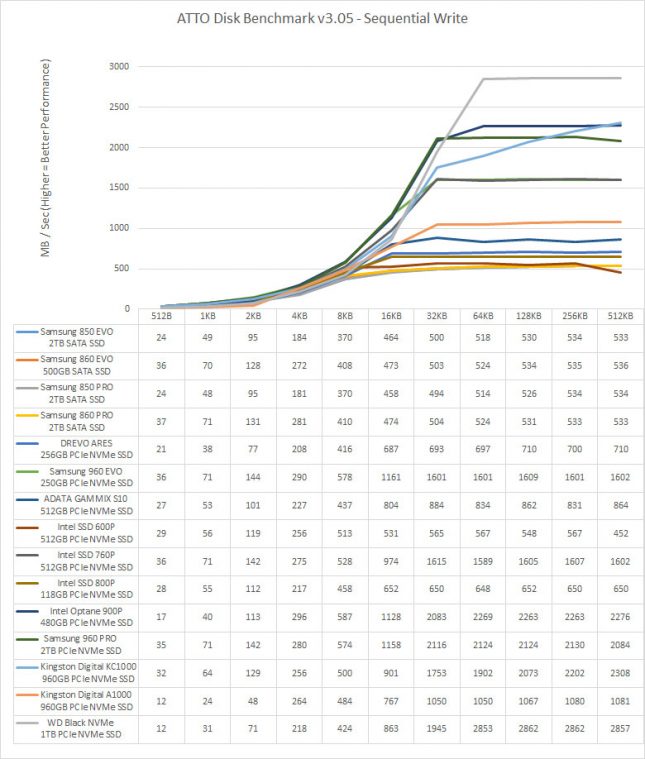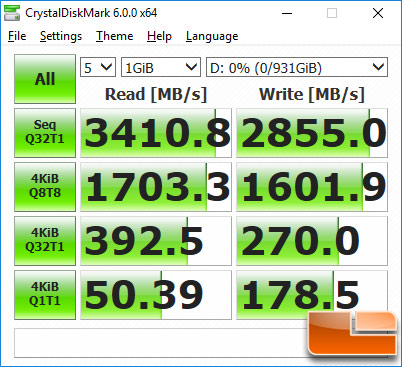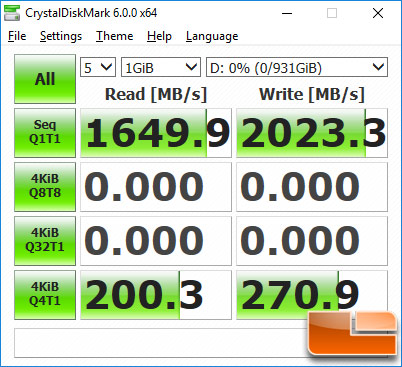WD Black NVMe 3D and SanDisk Extreme PRO NVMe 3D 1TB SSD Review
ATTO & CrystalDiskMark
ATTO v3.05
ATTO is one of the oldest drive benchmarks still being used today and is still very relevant in the SSD world. ATTO measures transfers across a specific volume length. It measures raw transfer rates for both reads and writes and places the data into graphs that can be very easily interpreted. The test was run with the default runs of 0.5KB through 64MB transfer sizes with the total length being 256MB.
ATTO – WD Black NVMe 1TB:
Benchmark Results: ATTO showed the WD Black NVMe PCIe NVMe drive reaching speeds of up to 3455 MB/s read and 2866 MB/s write in the standard overlapped I/O benchmark. Kingston has this drive rated at up to 3400 MB/s max sequential read and 2800 MB/s max sequential write, so our Intel Z370 based test platform was able to reach the drives rated speeds and exceed them by a bit.
Benchmark Results: The performance on the WD Black NVMe 2TB drive at lower block sizes wasn’t anything to write home about, but once we got up to around the 128KB block size the performance took off and continued to increase beyond where our chart cuts off.
Benchmark Results: On the write side we again see the WD Black NVMe drive do just okay at smaller block sizes, but by 16KB it is on par with most PCIe NVMe drives. At the 64KB block size and beyond it becomes the fastest PCIe NVMe drive that we have tested.
CrystalDiskMark 6.0.0 x64
CrystalDiskMark is a small benchmark utility for drives and enables rapid measurement of sequential and random read/write speeds. Note that CDM only supports Native Command Queuing (NCQ) with a queue depth of 32 (as noted) and shows the highest score of five runs.
CystalDiskmark – WD Black NVMe 1TB:
Benchmark Results: The WD Black PCIe NVMe 1TB drive topped out at 3411 MB/s read and 2855 MB/s write in the standard sequential write test that is done at QD32. This is well over the drives rated speeds of 3400 MB/s read and 2800 MB/s write. Random 4K QD1 performance was 50.4 MB/s read and 178.5 MB/s write. Those 4K random performance numbers improved up to 392.5 MB/s read and 270.0 MB/s write at a queue depth of 32.
Manually running the sequential performance test at Q1T1 showed performance of 1650 MB/s read and 2023 MB/s write. Random 4K performance at QD4 was 200 MB/s read and 271 MB/s write.
Let’s look at some other benchmarks!

